Welcome to the Convergent Science Network Podcast!
During the BCBT Summerschools (2010, 2011, 2012, 2013, 2014) hosting professors Paul Verschure and Tony Prescott interviewed several speakers after their lectures. Interviews are also conducted on other occasions with various scientist in converging fields.
About the hosts: Paul Verschure is ICREA Professor at SPECS, Universitat Pompeu Fabra, Barcelona; Tony Prescott is Professor of Cognitive Neuroscience, University of Sheffield.
The Convergent Science Network of biomimetic and biohybrid systems (CSN, www.csnetwork.eu) is a coordination action for the development of future real-world technologies. CSN is supported through the Future and Emerging Technology programs (FET) of the Information and Communication Technologies (ICT) work programme of Framework Programme 7 of the European Commission.
Audio (post-)production: Sytse Wierenga. Podcast site: Alberto Betella.
Thoughts, discussions, and achievements in neurobiology, biomimetic and biohybrid systems
We can learn a lot from brains and bodies when making machines and robots. But reversely, building complex machine systems can also give ideas about how brains and bodies have implemented their functioning over the evolution of ages. This podcast discusses various themes and aspects in-between robotics, neuroscience, cognitive science, artificial intelligence, biology, and technology.
Interview with Vincent Hayward
12-09-2018
Touch, the brain and the advanced experimental paradigms and models Vincent pursues to understand both.
Filetype: MP3 - Size: 68.99MB - Duration: 1:40:02 m (96 kbps 44100 Hz)
Tweet
Interview with Maarja Kruusma
05-04-2018
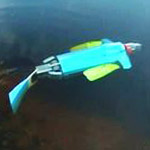
Maarja Kruusma (Tallin University of Technology) studies the building of fish, focusing especially on swimming. With Paul Verschure she discusses the importance of morphological details and body control, as well as biomimetical approaches in general.
Filetype: MP3 - Size: 65.27MB - Duration: 56:47 m (160 kbps 44100 Hz)
Tweet
Interview Kate J. Jefferey
05-04-2018
Kate J. Jefferey (University College, London) discusses her work on spatial navigation, focusing on the interaction between place cells, grid cells, and the influence of contextual clues.
Filetype: MP3 - Size: 175.87MB - Duration: 1:16:46 m (320 kbps 44100 Hz)
Tweet
Interview with Mandyam Srinivasan
05-04-2018
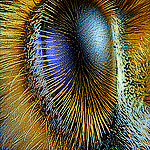
Mandyam Srinivasan's research (University of Queensland, Brisbane) centers on vision and cognition of flying insects, especially bees. He discusses it with Paul Verschure and special guest Partha Mitra (Cold Spring Harbor Laboratory, New York).
Filetype: MP3 - Size: 88.29MB - Duration: 1:04:05 m (192 kbps 44100 Hz)
Tweet
Interview with Giovanni Pezzulo
05-04-2018
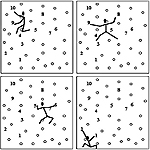
Giovanni Pezzulo (Institute of Cognitive Sciences & Technologies, Rome) discusses with Paul Verschure the concept of the predictive brain that actively anticipates body movement.
Filetype: MP3 - Size: 82.74MB - Duration: 1:00:03 m (192 kbps 44100 Hz)
Tweet
Interview with Guenther Knoblich
05-04-2018

Guenther Knoblich's work (Central European University, Budapest) focuses on joint action like performed in team sports, and acrobatics. With Paul Verschure he discusses cognitive aspects of coordination, timing, and signalling while moving together.
Filetype: MP3 - Size: 88.47MB - Duration: 1:04:14 m (192 kbps 44100 Hz)
Tweet
Interview with Donald W. Pfaff
05-04-2018

Donald W. Pfaff heads the Laboratory of Neurobiology and Behavior at The Rokefeller University. With Paul Verschure he discusses the central role of the arousal system in mind, brain, and behavior.
Filetype: MP3 - Size: 91.79MB - Duration: 1:06:39 m (192 kbps 44100 Hz)
Tweet
Interview with Dana Ballard
05-04-2018
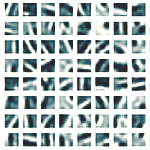
Dana Ballard (University of Texas, Austin) argues that vision is agenda-driven, rather than saliency-driven alone. With Paul Verschure he discusses how the idea of gathering and integrating information quanta into a mental scene applies to a wider model.
Filetype: MP3 - Size: 89.17MB - Duration: 1:04:44 m (192 kbps 44100 Hz)
Tweet
Interview with Kevin O'Regan
05-04-2018

Kevin O'Regan (Université Paris Descartes, France) theorizes building robots that can feel. Passing topics like sensory presence and sensorimotor laws, he and Paul Verschure reach the boundaries of what it means to 'feel'.
Filetype: MP3 - Size: 87.14MB - Duration: 1:15:53 m (160 kbps 44100 Hz)
Tweet
Interview with Hillel Chiel
05-04-2018
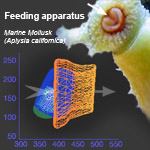
Main topics in Hillel Chiel's research (Case Western Reserve University, USA) are control systems, and biomechanics. With Paul Verschure he discusses how studying completely soft body control, like of tongues, can lead to finding main principles.
Filetype: MP3 - Size: 79.65MB - Duration: 1:09:21 m (160 kbps 44100 Hz)
Tweet


